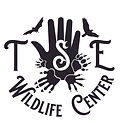.png)
Birds
Remember when you find injured wildlife these animals will be stressed and scared, making them more likely to to act out in anger. So make sure to handle with gloves and other appropriate protective items.
Injured birds may not be able to fly, have a droopy wing, or have discharge coming from their nose or mouth. If this describes your situation please contact TSE or the the West Seneca SPCA. Not your situation? Check out the chart below for further help.
NEVER FEED orphaned wildlife! Many animals need special bottles and formula to survive. Feeding them improperly will leave the babies worse off than being hungry!

Helpful Hints to Capture Birds
-
When handling larger birds be sure to:
-
Wear protective equipment (goggles, leather gloves, long sleeves, pants, etc)
-
Use either of these capture techniques:
-
-
Blanket toss- use a light sheet to toss over the animal; place both the animal and sheet into the box
-
Box Over- Gently place box over animal, use another piece of cardboard to make the floor/roof to the box, gentle turn box right side up, and tape shut
-
Cover the animal's eyes (can throw a sheet over the animal)
-
Tightly grip legs or feet, especially of larger birds with talons
-
Hold down wings against the body of birds in order to minimize damage to the wings
When transporting injured birds keep these key points in mind:
-
Once the bird in is the box never open the box especially when in the car
-
No music and limit talking
-
Never place the box in an enclosed truck
-
The floor board of a car is the most stable place to transport
-
In the summer, try to drive with windows down and limit the use of AC


.jpg)